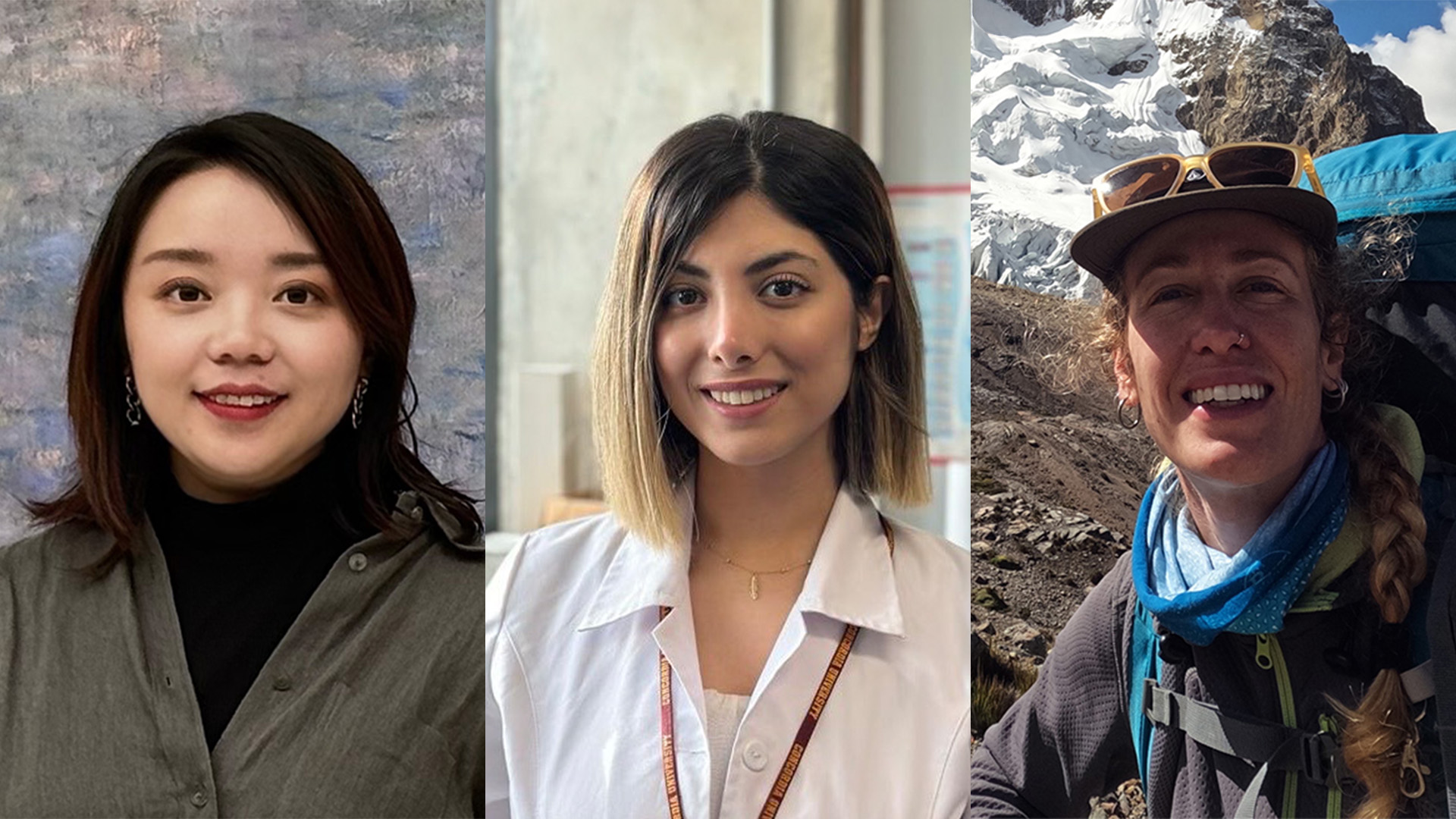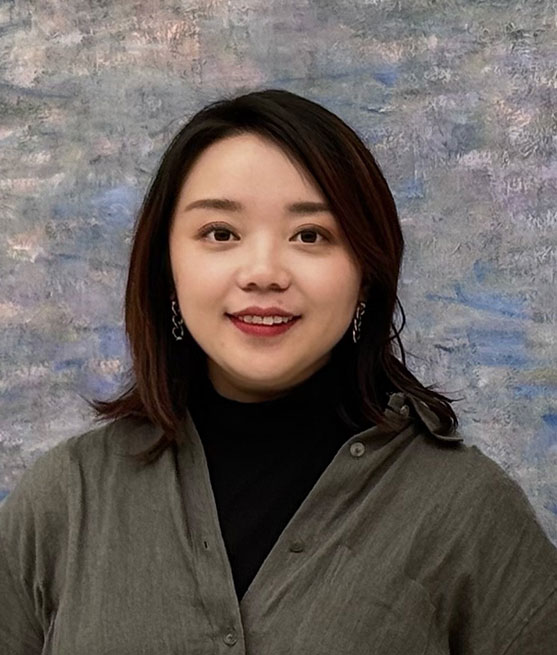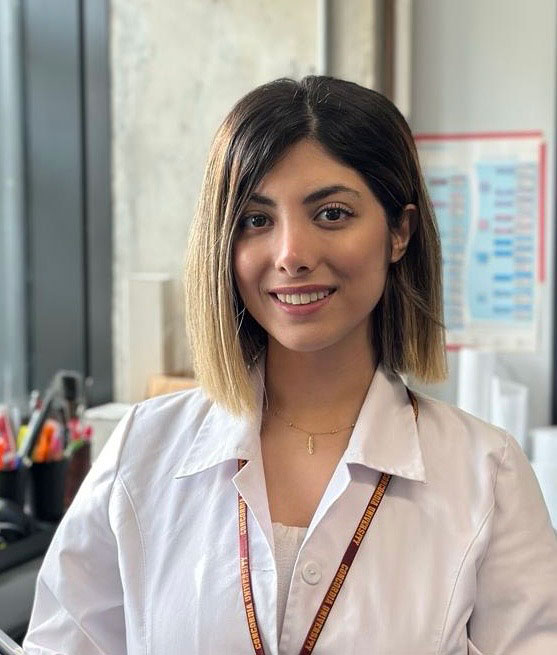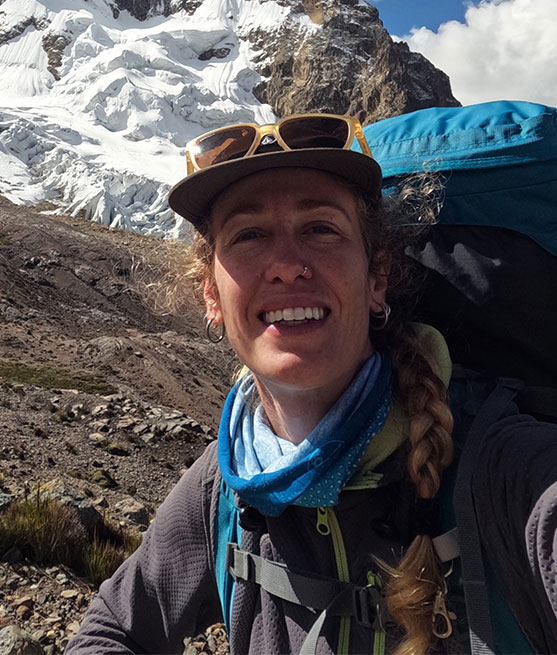Congratulations to the Judith McKenzie fellows!
We are pleased to welcome three outstanding early-career researchers, recipients of the 2025 Judith McKenzie Visiting Early Career Researcher Fellowship. Their diverse projects in geoscience bring valuable perspectives to our academic community.

About the Judith McKenzie Visiting Early Career Researcher Fellowship
The Judith McKenzie Visiting Early Career Researcher Fellowship is open to female-identifying PhD students (in any year of their programme) and Postdocs (within three years of obtaining their PhD) who are currently enrolled/employed at an established university or research institute. The goal of the fellowship is to foster scientific interactions, develop broader research networks, and ultimately to help improve gender representation in our community.
The Judith McKenzie Fellows 2025
Siqi Zhao

I am currently a PhD student in Marine Chemistry at Ocean University of China (OUC). From February to October 2025, I will participate in an eight-month joint training program at ETH Zurich, supported by OUC, under the supervision of Prof. Cindy De Jonge.
My research integrates molecular dynamics simulations and organic carbon cycle in extreme deep-sea environments.
With the support of McKenzie Fellowship, I will focus on the carbon transformation and preservation mechanisms at Earth system interfaces in the Japan Trench, one of the least-accessible ultra-deep oceanic settings in the marine environments.
Yeganeh Mirzaei

I am a final-year PhD candidate in analytical chemistry at Concordia University, Canada, focusing on the biogeochemical cycling of organic carbon (OC) in marine and coastal systems. I use elemental, isotopic, and biomarker tools to trace the environmental controls on OC dynamics.
I am honored to receive the Judith McKenzie Early Career Researcher Fellowship to visit the Geological Institute at ETH Zurich and collaborate with Prof. Timothy Eglinton’s Biogeoscience group.
My project, “Characterization of Minerally Protected Organic Matter in Sediments”, explores source-specific OC preservation along land-to-ocean transects. This work will be supported by advanced facilities at ETH Zurich, including Accelerator Mass Spectrometry, as well as resources at Eawag and the Clay Laboratory. These collaborations will provide critical insights into the composition of protected OC in aquatic systems.
Gabriella Furgis

I am a Brazilian geologist with DSc degree from the University of São Paulo (USP) and prior experience with the Civil Defense, which motivated me to develop postdoctoral research at the SPAMLab at IAG-USP, under the supervision of Prof. Dr. Carlos Henrique Grohmann.
My work focuses on landslide susceptibility mapping using LiDAR data to support risk management and urban planning. During my research stay at ETH Zurich with the Engineering Geology group led by Prof. Jordan Aaron, I aim to investigate the transferability of machine learning models between alpine and tropical settings, and compare the effectiveness of single-source (LiDAR or D-InSAR?) versus integrated data approaches for susceptibility assessments.